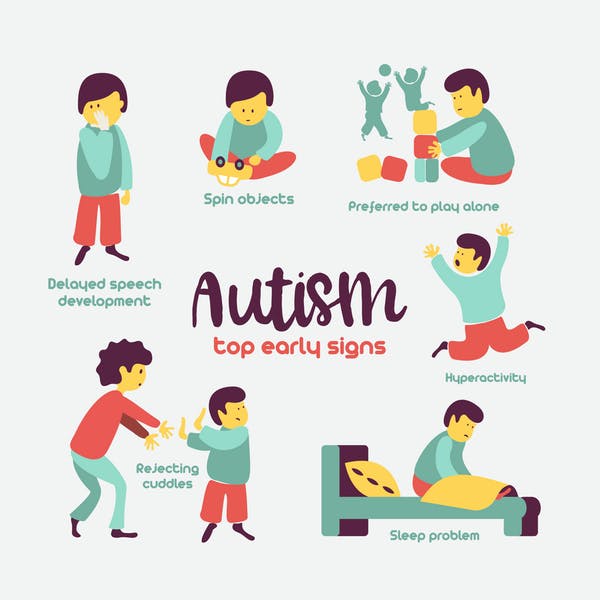Life with a child with special needs presents constant challenges and stress. Inevitably, you get wrapped up in the stresses and strains of everyday life.
Marriage and family relationships are impacted. Communication problems, lack of time and energy for personal, marital, and family activities, and social isolation affect many families. It seems obvious that parents need to refresh and recharge. How does a parent get a break?
First and most critical is your own state of mind about the emotional issues. Is there guilt and are you ready to deal with it? Can you trust anyone with your precious and fragile child? Is there fear that something could go wrong and how can you manage it? Second and also challenging is where and how to find help. Do you turn to relatives and friends or do you seek services through a public agency?
Let’s look at the obstacles and the solutions.
Undoubtedly you dreamed of a healthy child — now you face a different life. Feeling overwhelmed at this point is normal and natural but very difficult. You love your child, but sometimes you feel you need a break. It is so hard to give yourself permission to take one.
Many “shoulds” may surface: I should be able to handle her all of the time, I should love being around my child, I should not tire of giving love to my family. These shoulds can make it difficult if not impossible to take a break or ask for help.
Nurturing Yourself
The most important thing to remember, however, is that this way of thinking is irrational. Taking a break from caregiving, or craving adult time instead of watching the same video for the 47th time has nothing at all to do with love. The more you nurture and give to yourself, the more you will have to give to your family and the feelings of love will permeate more of the time.
Once you do convince yourself that you deserve a break, there may be other levels of emotional resistance. Let’s get one thing out in the open. The absolute ideal person to spend time with your child is you. You are the best, most competent, most loving person available to care for your child.
But this is no reason to never take a break. Okay, so the nurse isn’t as patient as you when your child tries to drink from the straw, and you can’t be totally sure of how much time the babysitter is talking on her cell. Clearly, if you have a medically fragile child you need someone who has some experience with the kinds of medical issues they may face with your child. Maybe they won’t be as gentle with the trach; maybe they are a little more assertive than you in giving the medication.
Your child will not only live through this, but will learn through it. Admit that nobody will be as good as you. Then find the best possible alternative. Most of all, your child will learn that you always come back, that you love him the best and you are happy to see him when you come home after a restful break.
Once the emotional issues are resolved enough to consider finding someone else to watch your child, new roadblocks may emerge.
Respite is temporary relief for caregivers and families of children with disabilities, chronic or terminal illnesses or the elderly. Even though most families take joy in providing care to their children, the physical, emotional and financial demands can be overwhelming. Respite programs began in the late 1960's with the belief that the best place to care for a child with disabilities was in the home and community.
Finding Respite Services
The National Respite Network has a “Respite Locator Service” that helps parents, caregivers, and professionals to find services in their state and locale. If you fail to find a program near you, contact one of the following:
- Your county department of mental health and mental retardation
- The ARC
- United Cerebral Palsy
- Your state’s Developmental Disabilities Council
- Your house of worship
- Family service organizations
According to Melissa Modesti, an Elwyn Special Education for Early Developmental Success (SEEDS) social worker, “There are many bumps in the road that can leave your head spinning. The less demanding the child’s needs, are the easier it is to find the help.” Wendy Schmid, another Elwyn social worker and director of training, has seen some children grow up to adulthood without their parents ever getting away for a weekend because their child could not be cared for in their absence.
From a behavioral health perspective, families face similar hurdles. At times, parents wind up taking their children to a crisis center, according to Francesca Vassalluzzo, a program manager for children and youth at the Southeastern Pennsylvania Mental Health Association (SPMHA). A psychiatric hospitalization may occur for the child “when families are at the breaking point.” The SPMHA advocates a continuum of respite to support families and children.
State Programs
Funding often presents a roadblock in getting respite care. In Pennsylvania, children with disabilities have little chance of getting funding for respite unless they meet the criteria for mental retardation (MR). In New Jersey, families can qualify through the Department of Developmental Disabilities (DDD), which has broader criteria and does not require the MR label. Eligible families can access services in their home for 20 hours per month and get a respite worker or money to hire their own support person.
In Delaware, the Division of Developmental Disabilities Services (DDDS) has a respite program that provides for a maximum of 240 hours per year without charge, “contingent on the availability of resources.” Unfortunately, resources have not increased but demand has. The Delaware Department of Education has developed a respite program for families who have children with autism, allotting 24 hours of respite per month. The family is also allotted seven days each year for vacation. Payment for respite is on a sliding scale, with parents responsible for 5-25 percent of the cost.
In late 2006, President George W. Bush signed The Lifespan Respite Care Act of 2006 (HR 3248). The law authorized $289 million over five years for state grants to develop Lifespan Respite Programs for quality, affordable respite care. Delaware, New Jersey and Pennsylvania participate in the program.
Do It Yourself
Many families prefer to arrange their own respite with people they know and trust, such as a compassionate relative or friend who knows their child and understands her particular needs.
A respite swap may be possible with another family who has a child with special needs. This could be set up as a sleepover and be really fun for the children of both families. During the following month, the families switch roles. The parents without children get a free weekend.
According to Kristin Nelson, family support director of the Illinois Autism Training and Technical Assistance Project, “For those fortunate enough to have funding for support personnel, it is both a blessing and a headache — a blessing because the right person can make a huge contribution to a family's quality of life, and a headache because the task of finding, training and keeping the right person is a part-time job unto itself.”
A guide for finding, choosing and keeping direct support professionals, produced by the Universities of Illiniois and Minnesota, is available in PDF format. at http://rtc.umn.edu/ILdspworkforce/docs/ToolkitforFamilies.pdf
There are many obstacles to respite care, both emotional and logistical. The emotional challenges have to be worked through within ourselves and often also between us and other family members. This is an arduous task, but is important in order to take the next step and actually seek the respite care you so need and deserve.
The “system” can be helpful but also presents many obstacles, so creative personal solutions are often necessary. The goal is a critical one: to rejuvenate and replenish your own sense of energy and to give to yourself so that you have even more to give to your children.
Cindy N. Ariel, PhD and Robert A. Naseef, PhD, are Philadelphia psychologists who specialize in helping families cope with special needs (AlternativeChoices.com). They are the co-editors of Voices from the Spectrum: Parents, Grandparents, Siblings, People with Autism, and Professionals Share Their Wisdom (Kingsley, Jessica Publishers, $19.95).






